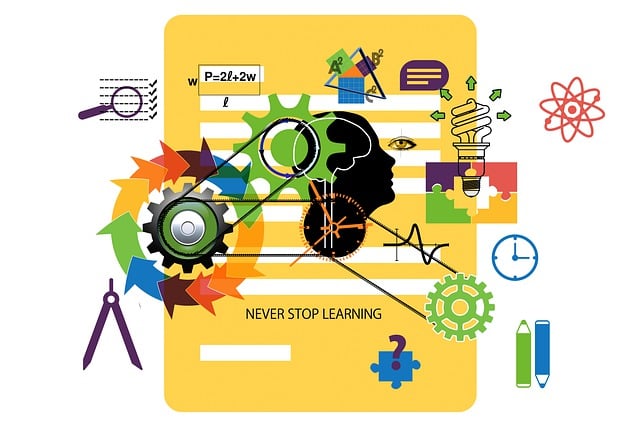Karachi's educational system is a unique blend of traditional and modern methods, catering to Pakistan's economic hub and its future workforce needs. By integrating tech trends, diverse curricula, and skill development, educational institutions can create inclusive learning environments that unlock the potential of Karachi's youth. This approach ensures students are equipped with relevant skills like coding, data analysis, critical thinking, and adaptability, enabling them to contribute to the city's dynamic economy and global competitiveness.
Karachi, Pakistan’s economic hub, presents a unique educational landscape that demands innovative curriculum adaptations to meet future workforce needs. This article explores strategies to bridge the skills gap prevalent in Karachi’s job market. We delve into understanding the city’s distinct educational context, identifying crucial skills for emerging professionals, and highlighting curriculum adjustments to incorporate emerging technologies. Additionally, we emphasize the importance of fostering lifelong learning and developing resilient skills to prepare Karachi’s future workforce for an ever-evolving digital age.
- Understanding Karachi's Unique Educational Landscape
- Identifying Skills Gaps for the Future Workforce
- Adapting Curriculum to Embrace Emerging Technologies
- Fostering Lifelong Learning and Resilient Skills Development
Understanding Karachi's Unique Educational Landscape

Karachi, as Pakistan’s economic hub and a bustling metropolis, boasts an intricate educational landscape that reflects its diverse and dynamic nature. The city’s schools and institutions cater to a wide range of students from various backgrounds, making it a melting pot of cultures and learning styles. This unique environment presents both opportunities and challenges for educators when shaping curricula to meet the needs of the future workforce.
The educational tapestry of Karachi is characterized by a mix of traditional and modern teaching methods. Many schools adopt innovative approaches, incorporating technology into classrooms to prepare students for the digital age. However, ensuring equal access to quality education remains a concern, as socio-economic disparities can impact learning outcomes. Understanding these nuances is vital to adapting curricula that foster inclusivity and cater to the diverse talents and aspirations of Karachi’s youth, ultimately shaping them into skilled contributors to the city’s ever-evolving workforce.
Identifying Skills Gaps for the Future Workforce

In the dynamic landscape of Karachi, Pakistan’s economic hub, identifying future workforce needs is paramount to ensuring sustained growth and competitiveness. As industries evolve rapidly, educational institutions must proactively anticipate and address skills gaps. This involves a meticulous process of analyzing emerging trends in technology, business models, and global market demands. By leveraging data from industry experts, government reports, and academic research, curriculum developers can predict the skills that will be most sought after in the coming years.
Focusing on Karachi’s unique context, educational planners should pay special attention to sectors driving economic growth, such as information technology, healthcare, and renewable energy. Skills like coding, data analysis, critical thinking, and adaptability are already in high demand and are expected to remain so in the future. Additionally, soft skills such as communication, collaboration, and problem-solving are essential for any successful career. By integrating these skill sets into curricula, Karachi’s educational institutions can prepare students for the challenges and opportunities of tomorrow.
Adapting Curriculum to Embrace Emerging Technologies

In the dynamic landscape of education, keeping pace with technological advancements is paramount, especially in a bustling metropolis like Karachi where innovation drives economic growth. Adapting curriculum to embrace emerging technologies ensures that students are equipped with relevant skills for the future workforce. This involves incorporating digital literacy and programming fundamentals into subjects across the board, from science and engineering to humanities and social sciences. By integrating tools like artificial intelligence, cloud computing, and data analytics early on, educational institutions can prepare students to navigate and contribute to a technology-driven world.
Karachi’s diverse academic ecosystem presents unique opportunities for curriculum innovations. Schools and universities can collaborate with local tech industries to offer hands-on experiences and internships, bridging the gap between theoretical knowledge and practical applications. Such partnerships not only enrich the learning experience but also expose students to real-world challenges and solutions, fostering a generation of adaptable and tech-savvy professionals ready to meet Karachi’s evolving economic needs.
Fostering Lifelong Learning and Resilient Skills Development

In the dynamic landscape of Karachi, where industries are evolving rapidly, fostering lifelong learning becomes paramount for the future workforce. Educational institutions play a crucial role in equipping students with skills that adapt to changing job market demands. The emphasis should be on developing resilient skills such as critical thinking, problem-solving, and adaptability. By incorporating these into the curriculum, students will be better prepared to navigate the unpredictable nature of future work environments.
Reskilling and upskilling programs can be integrated into existing educational frameworks to ensure that learners stay relevant in a rapidly changing economy. This involves encouraging a growth mindset, where individuals view challenges as opportunities for learning and personal development. In Karachi, with its diverse and burgeoning industries, promoting lifelong learning is not just an option but a necessity, ensuring that the city’s workforce remains competitive and adaptable on a global scale.
Karachi’s educational landscape presents unique challenges and opportunities in shaping the future workforce. By addressing skill gaps through curriculum adaptations, focusing on emerging technologies, and fostering lifelong learning, the city can prepare its students for an ever-evolving job market. These strategies ensure that Karachi’s graduates are equipped with the necessary tools to thrive in a rapidly changing global environment, making them valuable assets to various industries.
